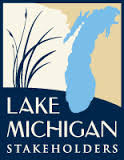Outreach Strategies
The most effective educational content targets its messaging to a specific audience. Below, we have included outreach strategies for target audiences relevant to stormwater education. Use this information when creating your outreach for a more effective program
Millennials
Millennials consume information from a variety of social media platforms, professors and other educators, and peers.
Incorporate wildlife into messaging when possible.
Use Facebook for news and events. Use Instagram for emotionally evocative images.
Use emotionally evocative images and invitations on social media to help them “connect” to Lake Michigan and the rest of the watershed.
Relevant topics include: What is a Watershed?, Ice and Snow Control, Rain Gardens, Pet Poop, Rain Barrels, Vehicle Fluid, Leaves, Planting Trees, Lawn Chemicals, What is Stormwater?
Urban Homeowners
Homeowners consume information from traditional news sources such as print, radio, and TV, but many also use Facebook and other social media.
Show that money spent on Lake Michigan is a good investment in the future of the homeowners and their children— they are concerned about finances and their families.
Use connections to place, as homeowners are rooted in their community.
Relevant topics include: What is a Watershed?, Ice and Snow Control, Rain Gardens, Pet Poop, Rain Barrels, Vehicle Fluid, Leaves, Lawn Chemicals, What is Stormwater?
Lakefront landowners
Lakefront landowners consume well-researched and factual stories from a variety of sources. They also want clarity and a plan of action.
Because environmentalism is politicized, make issues and solutions about quality of life and property value.
Ask for their participation in solutions (many will be willing to donate financially if not with their time because of their busy schedules.)
Show them that you care about their concerns.
Be a source of information on a regular basis.
Relevant topics include: What is a Watershed?, Ice and Snow Control, Rain Gardens, Pet Poop, Rain Barrels, Vehicle Fluid, Leaves, Planting Trees, Lawn Chemicals, What is Stormwater?
rural landowners
Rural Landowners consume print and radio news sources.
Because environmentalism is politicized, make issues and solutions about quality of life and property value.
Create relationships with local taverns that act as meeting places.
Show them you care about their concerns.
Relevant topics include: What is a Watershed?, Ice and Snow Control, Rain Gardens, Pet Poop, Rain Barrels, Vehicle Fluid, Leaves, Agriculture Best Management Practices, Planting Trees, Lawn Chemicals, What is Stormwater?
Farmers
Farmers consume information from peers (other trusted farmers) and other agricultural and business problem solvers and experts.
Provide real life examples and references.
Use quick, easy, and relevant information — “news they can use”.
Be consistent and clear on your positions, but also make clear your goal is to learn from them.
Speak to your common values. Farmers self-identify as caretakers of the land, as people who work to make this land better for the next generation.
Relevant topics include: What is a Watershed?, Vehicle Fluid, Agriculture Best Management Practices, Planting Trees, What is Stormwater?
Policy Makers
Help them be a champion of their community.
Policy makers are often very busy so limit content to be short and to the point.
Explain the value of a “long-term investment”.
Sustainability and jobs do not have to compete. In fact, they can build off one another.
Healthier, greener, and cleaner increases property value.
Relevant topics include: What is a Watershed?, Ice and Snow Control, What is Stormwater?
Associations
Associations consume information from peer associations, partners, local news services, members, and experts.
Because environmentalism is politicized, and associations don’t want to alienate their members and may subscribe to the “jobs vs. environment” narrative, make issues and solutions about quality of life and property value.
Show associations how a clean and healthy lake can help them achieve their mission.
Relevant topics include: What is a Watershed?, Ice and Snow Control, What is Stormwater?
Science Communications Tool Kit
These one page sheets can work with the outreach strategies above to guide communication efforts with different demographics of the general public





